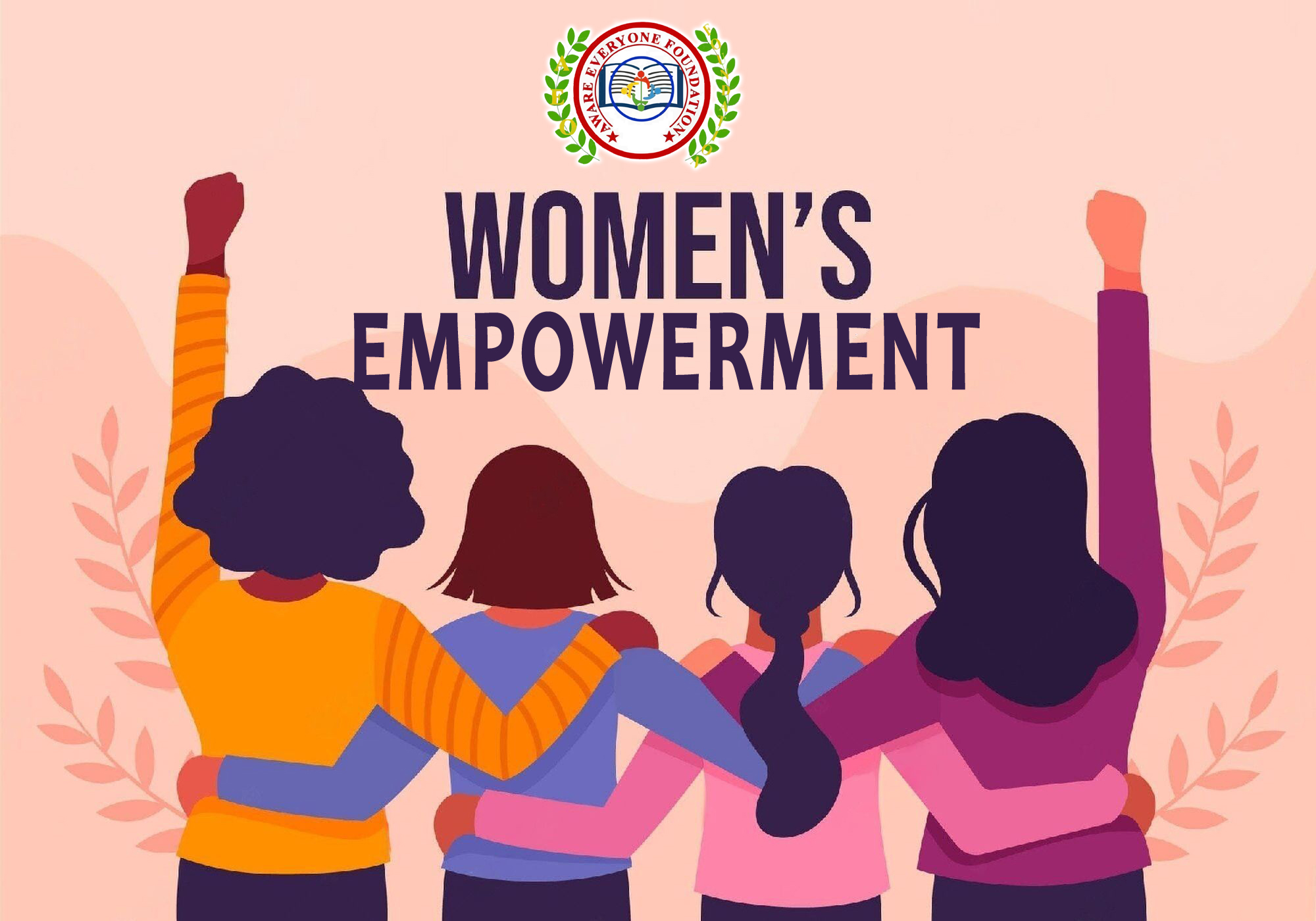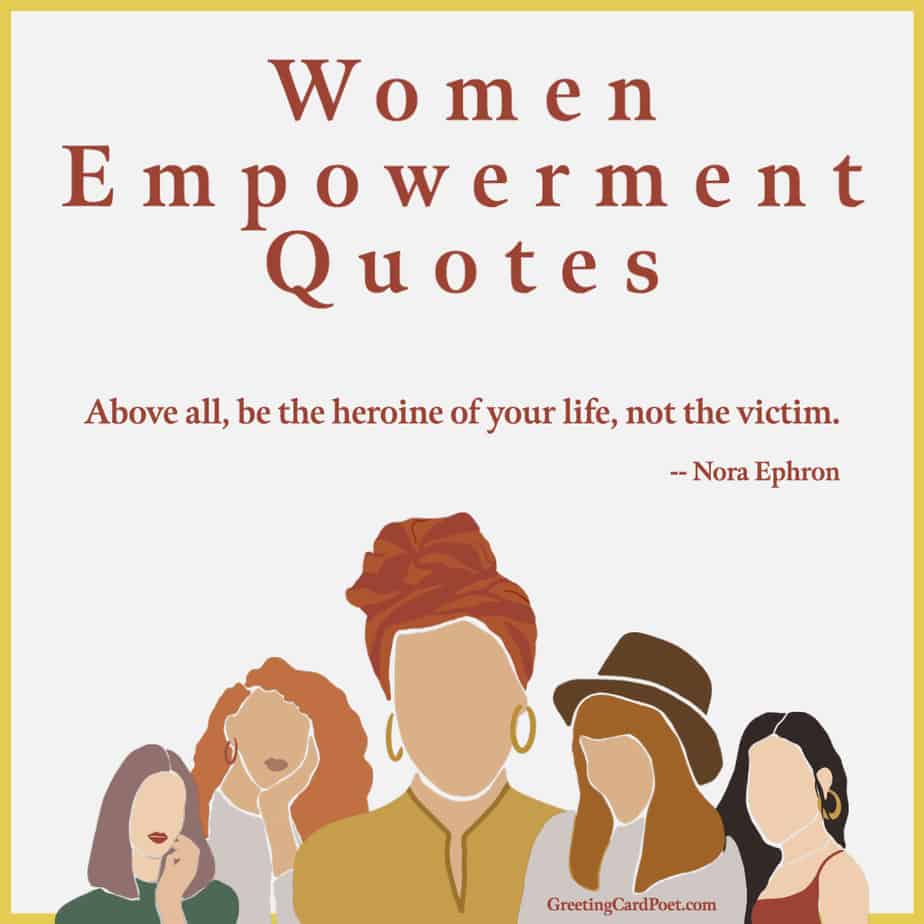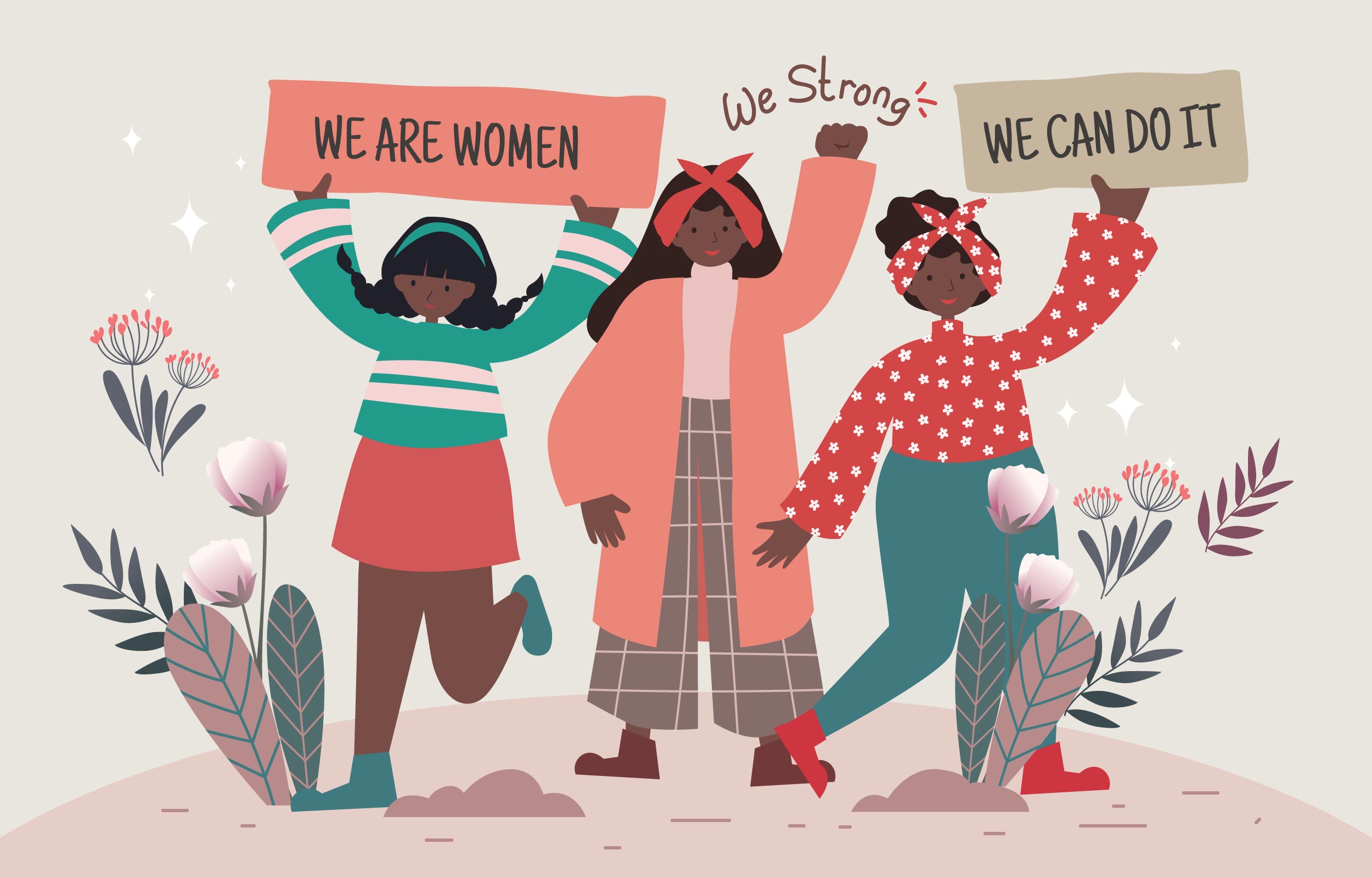The Empowerment of Women: A Journey Towards Equality and Progress
Related Articles: The Empowerment of Women: A Journey Towards Equality and Progress
Introduction
In this auspicious occasion, we are delighted to delve into the intriguing topic related to The Empowerment of Women: A Journey Towards Equality and Progress. Let’s weave interesting information and offer fresh perspectives to the readers.
Table of Content
The Empowerment of Women: A Journey Towards Equality and Progress

The empowerment of women is not a singular event, but rather a continuous process that encompasses a spectrum of social, economic, and political advancements. It signifies a shift in societal structures, challenging deeply ingrained norms and promoting equal opportunities for women in all spheres of life. This journey, while marked by significant progress, remains incomplete, demanding persistent efforts to dismantle systemic barriers and ensure true equality.
Understanding the Core of Empowerment:
Empowerment, in essence, is about providing women with the agency and resources to make informed choices and control their own lives. This encompasses:
- Economic Empowerment: Gaining financial independence through access to education, employment opportunities, and fair wages. This includes breaking down gender pay gaps, promoting entrepreneurship, and providing access to financial services.
- Political Empowerment: Participating in political processes, holding leadership positions, and influencing decision-making. This involves encouraging women’s political participation, ensuring their representation in government, and tackling gender-based violence in politics.
- Social Empowerment: Having equal access to education, healthcare, and social services, breaking free from societal norms that limit their choices and opportunities. This encompasses addressing gender stereotypes, promoting gender equality in education, and ensuring women’s safety and security.
- Cultural Empowerment: Celebrating and preserving women’s cultural heritage, challenging harmful cultural practices that perpetuate inequality, and ensuring women’s voices are heard and respected in the cultural sphere.
The Importance of Empowerment:
The empowerment of women is not merely a matter of fairness; it is a fundamental necessity for societal progress and development. It yields numerous benefits, both for individual women and for society as a whole:
- Economic Growth: Empowered women contribute significantly to economic growth. Studies show that investing in women’s education and economic opportunities leads to higher productivity, increased GDP, and a more diverse and vibrant economy.
- Improved Health Outcomes: Empowered women are more likely to access healthcare services, receive quality prenatal care, and make informed decisions about their health, leading to better health outcomes for themselves and their families.
- Reduced Poverty: Economic empowerment plays a crucial role in reducing poverty. When women have access to resources and opportunities, they can break the cycle of poverty and lift their families out of hardship.
- Increased Social Stability: Empowered women contribute to a more peaceful and stable society. Studies show a correlation between women’s participation in decision-making and reduced conflict and violence.
- Enhanced Democracy: Empowered women contribute to a more inclusive and representative democracy. When women participate in political processes, they bring diverse perspectives and advocate for policies that benefit all members of society.
Obstacles to Empowerment:
Despite significant progress, numerous obstacles still hinder women’s empowerment:
- Gender Stereotypes and Discrimination: Deeply ingrained societal norms and biases often limit women’s choices and opportunities. Gender stereotypes can restrict career aspirations, limit access to education, and perpetuate violence against women.
- Lack of Access to Education: In many parts of the world, girls face barriers to education, including cultural norms, poverty, and lack of infrastructure. This limits their ability to develop skills and pursue fulfilling careers.
- Violence Against Women: Violence against women remains a pervasive issue, hindering their ability to live safely and freely. This includes physical, sexual, and psychological violence, which can have devastating consequences on women’s health and well-being.
- Limited Economic Opportunities: Women often face limited access to economic opportunities, including employment, entrepreneurship, and financial services. This can be due to discrimination, lack of access to training, and limited access to capital.
- Lack of Political Representation: Women are still underrepresented in political leadership positions, limiting their ability to influence policy decisions and advocate for their needs.
Strategies for Empowerment:
Addressing these obstacles requires a multi-pronged approach that involves:
- Education and Awareness: Promoting gender equality through education, raising awareness about gender stereotypes, and challenging harmful cultural practices.
- Economic Opportunities: Creating more opportunities for women in the workforce, providing access to training and skills development, and promoting women’s entrepreneurship.
- Legal and Policy Reforms: Enacting laws and policies that protect women’s rights, prohibit discrimination, and ensure their access to justice.
- Social and Cultural Change: Challenging gender stereotypes, promoting gender equality in media and culture, and fostering a more inclusive and respectful society.
- Investing in Women’s Leadership: Encouraging women’s participation in politics, providing leadership training, and supporting women’s leadership initiatives.
FAQs on Women’s Empowerment:
Q: How can we measure the progress of women’s empowerment?
A: Progress can be measured through various indicators, including:
- Education: Enrollment rates, literacy rates, and access to quality education for girls.
- Health: Maternal mortality rates, access to healthcare services, and prevalence of gender-based violence.
- Economic Participation: Labor force participation rates, gender pay gaps, and access to financial services.
- Political Representation: Number of women in elected office, women’s participation in political parties, and influence on policy decisions.
- Social Norms: Prevalence of gender stereotypes, attitudes towards women’s roles in society, and levels of gender-based violence.
Q: What are the key challenges in empowering women in developing countries?
A: Developing countries often face unique challenges, including:
- Poverty and Inequality: High levels of poverty can limit access to education, healthcare, and economic opportunities for women.
- Cultural Norms: Traditional gender roles and norms can restrict women’s choices and opportunities.
- Lack of Infrastructure: Limited access to transportation, communication, and other infrastructure can hinder women’s ability to participate in the economy and society.
- Violence and Conflict: Violence against women, including domestic violence and sexual assault, can be widespread in developing countries, hindering their ability to live safely and freely.
Q: What role can men play in empowering women?
A: Men have a crucial role to play in promoting gender equality:
- Challenging Gender Stereotypes: Men can challenge traditional gender roles and stereotypes by promoting a more egalitarian view of gender.
- Supporting Women’s Rights: Men can advocate for women’s rights and speak out against discrimination and violence against women.
- Sharing Household Responsibilities: Men can share household responsibilities equally with their partners, promoting a more equitable division of labor.
- Mentoring and Supporting Women: Men can mentor and support women in their careers and personal lives, creating a more inclusive and supportive environment.
Tips for Empowering Women:
- Educate Yourself: Learn about the challenges women face and the importance of gender equality.
- Challenge Gender Stereotypes: Question and challenge gender stereotypes in your own life and in society.
- Support Women’s Businesses: Patronize women-owned businesses and invest in women-led initiatives.
- Advocate for Women’s Rights: Speak out against discrimination and violence against women and support policies that promote gender equality.
- Be an Ally: Stand up for women in your community and workplace, creating a more inclusive and supportive environment.
Conclusion:
The empowerment of women is a complex and multifaceted process, requiring sustained efforts from individuals, organizations, and governments. It is a journey towards a more just and equitable world, where women can fully realize their potential and contribute to the progress of society. By dismantling systemic barriers, promoting equality, and fostering a culture of respect and inclusion, we can create a future where women are empowered to live fulfilling and meaningful lives.







Closure
Thus, we hope this article has provided valuable insights into The Empowerment of Women: A Journey Towards Equality and Progress. We thank you for taking the time to read this article. See you in our next article!